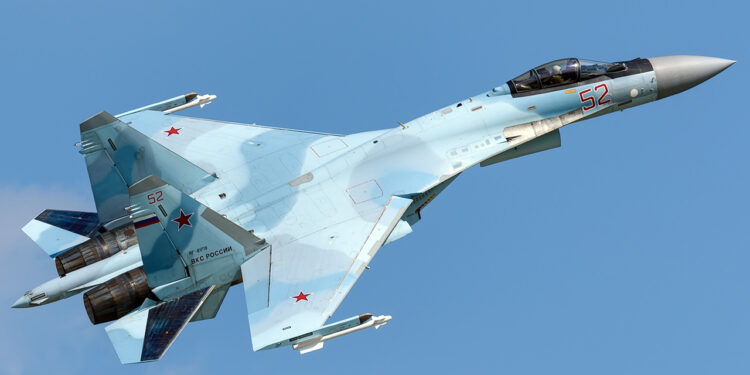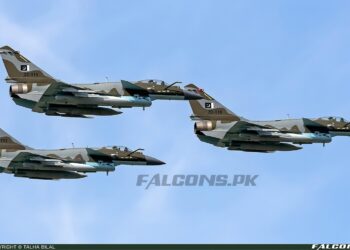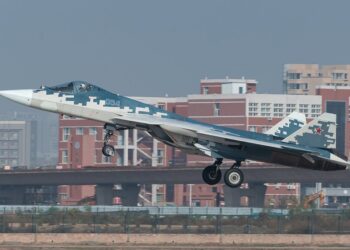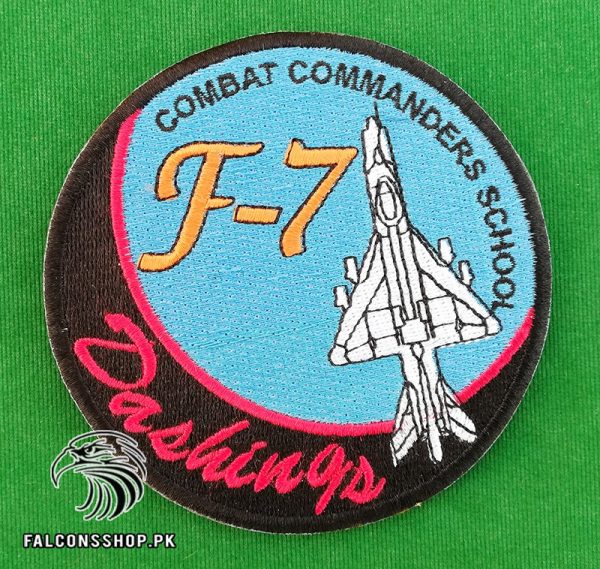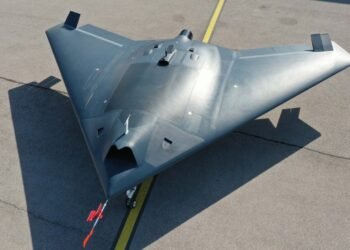TEHRAN: Iran will receive the first shipment of Russian SU-35 warplanes within the next week, according to a report on Friday. Facing severe Western sanctions, Tehran and Moscow have started to strengthen their relationship.
In recent months, Iran and Russia have inked significant agreements to expand their economic, commercial, energy, and military ties. It was first reported by Iran’s Persian-language media, which did not go into detail about the shipment.
The SU-35 is a fourth-generation fighter aircraft primarily built for air superiority missions. There have been media reports in recent months alleging that Iran has received SU-35 aircraft from Russia. In March, Iran’s permanent delegation to the United Nations acknowledged that the government had sealed a contract to acquire the plane.
According to Iranian media sources at the time, 24 units of the fighter jets will be delivered to Iran. Speaking with Tasnim in March, Shahriar Heidari, a member of the Iranian Parliament’s National Security and Foreign Policy Committee, underlined that Iran has ordered Sukhoi Su-35 fighter jets from Russia, and they will arrive in the country in early 1402.
The lawmaker pointed out that Iran has additionally ordered from Russia a number of other pieces of military hardware, including air defense systems, missile systems, and helicopters, the majority of which will be delivered soon.
Tactical Air Base (TAB) 8 of the Islamic Republic of Iran Air Force (IRIAF), located in the city of Isfahan in central Iran, is expected to house some of the combat aircraft.
The Sukhoi Su-35 fighter jet “combines the qualities of a modern fighter (super-maneuverability, superior active and passive acquisition aids, high supersonic speed and long range, capability of managing battle group actions, etc.) and a good tactical airplane (wide range of weapons that can be carried, modern multi-channel electronic warfare system, reduced radar signature, and high combat survivability),” according to Russia’s United Aircraft Corporation (UAC).
With the exception of a few Russian MiG-29 Fulcrum fighters it purchased in the 1990s, Iran hasn’t purchased any new fighter aircraft in recent years. After Washington unilaterally pulled out from the 2015 nuclear agreement, officially known as the Joint Comprehensive Plan of Action (JCPOA), Iran fell under an all-encompassing regime of American sanctions in 2018.
After Moscow began a military campaign in Ukraine in February, the United States and its allies slapped a number of identical and even more severe sanctions on Russia. Experts believe that U.S. sanctions did not succeed in achieving its primary goal of compelling Iran to make significant political and military concessions. They assert that the restrictions even gave Iran the chance to reduce reliance on oil incomes, adopt a resistance economy and focus more on its own talents.
Vladimir Putin, the President of Russia, said earlier this year at an economic symposium in Vladivostok that Moscow had benefited from Western sanctions because they had given it greater opportunity to join West Asia and Iranian markets.

